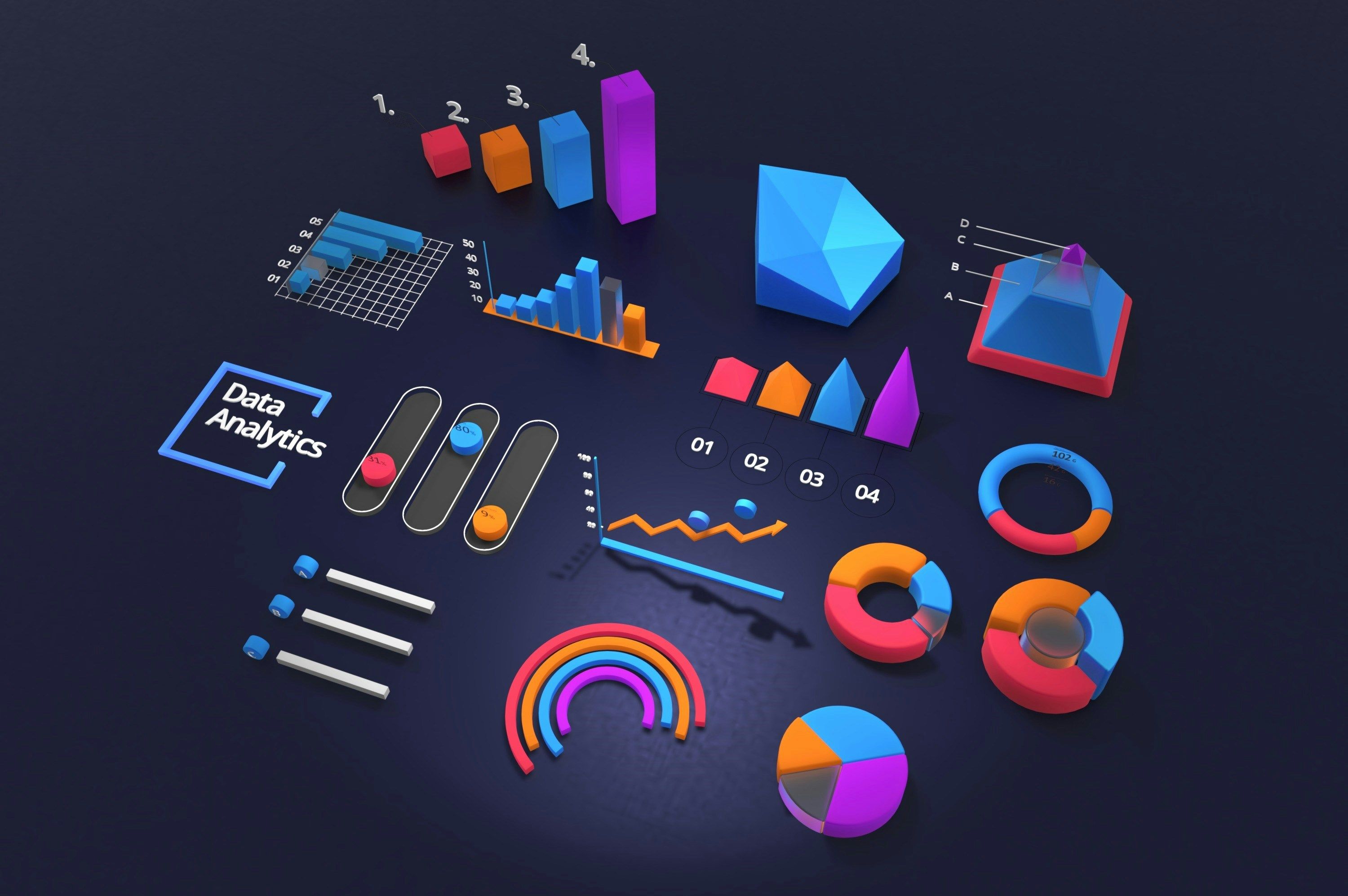Harnessing the Power of Data: Personalizing K-12 Learning for Student Success
)
The rise of data analytics in education presents a groundbreaking opportunity for K-12 schools to customize learning experiences tailored to each student's unique needs. By effectively utilizing learning and retention data, educators can monitor student progress in real time and improve educational outcomes.
In this article, we'll dive into the world of data analytics, exploring how it can transform your classroom, the essential tools at your disposal, and the crucial privacy considerations to keep in mind.
Understanding Data Analytics in K-12 Education
At its core, educational data analytics involves collecting and interpreting data on student performance, attendance, and behavior to shape more effective instructional strategies. The goal is to provide a more customized learning experience that meets the unique needs of each student.

Forget those time-consuming spreadsheets and manual tracking systems! Today's data analytics tools can crunch massive amounts of data in a flash, revealing hidden patterns and trends that can revolutionize your teaching. These insights can help you identify learning gaps, track student progress, and adjust your teaching methods accordingly.
Tailoring Your Teaching: Meeting Students Where They Are
Personalized Learning Paths
Imagine a classroom where every student has a learning journey tailored just for them. Data analytics makes this a reality by enabling you to create personalized learning paths that cater to individual needs and strengths. Adaptive learning platforms leverage algorithms to assess student data and adjust lesson difficulty and pacing to match each student's performance.
For instance, a student struggling with multiplication might be automatically assigned additional practice problems and resources to strengthen their understanding, while a student excelling in the same area could be approved to tackle more advanced concepts. This level of customization ensures that each student receives the support they need to succeed.
Differentiated Instruction
Data analytics empowers you to create a classroom where one size doesn't fit all. By analyzing student data, you can differentiate your instruction, providing targeted support and challenges to meet the diverse needs of your learners. By analyzing assessment results, attendance records, and engagement levels, you can identify which students need more support and which ones are ready for more challenging material.

Edmentum's Exact Path is like having a personalized learning roadmap for each student. This powerful tool generates detailed reports on student progress, empowering you to craft lessons that cater to different learning styles and abilities.
This approach helps create an inclusive classroom environment where all students can thrive.
Giving Adjustments and Feedback in Real Time
Utilizing key data insights, teachers can offer immediate feedback, enriching the learning experience for both students and educators. Immediate feedback helps students understand their mistakes and learn from them promptly, promoting a continuous growth mindset. Real-time data also allows teachers to adjust their instructional strategies on the fly, ensuring that they meet students’ evolving needs.
Celebrating & Improving Upon Student Progress
Early Identification of At-Risk Students
Data analytics plays a crucial role in identifying at-risk students early. By monitoring key indicators such as attendance, grades, and behavioral patterns, educators can spot warning signs and intervene before issues escalate.
For instance, BrightBytes’ Early Warning module harnesses predictive analytics to identify students at risk of falling behind. This proactive approach allows schools to provide timely support, such as tutoring or counseling, to help students stay on track.
Tracking Longitudinal Data
Tracking longitudinal data allows educators to analyze student performance over time, uncovering trends that inform smarter decisions about curriculum and instruction.
This methodology helps educators understand how students progress throughout their academic careers while making it easier to pinpoint areas that need improvement.
Tools like PowerSchool’s Unified Insights offer comprehensive dashboards that visualize longitudinal data, making it easier for educators to track student growth and adjust their strategies accordingly.
Benchmark Assessments
Regular benchmark assessments are essential for monitoring student progress and ensuring that they are meeting learning goals. Data analytics tools can help you design and implement performance assessments more easily and effectively.
NWEA’s MAP Growth assessments, for example, provide detailed reports on student performance, helping teachers identify strengths and weaknesses. This data can be used to tailor instruction and provide targeted support where it is needed most.
Improving Educational Outcomes
Data-Driven Decision-Making
Data analytics enables data-driven decision-making, which is critical for improving educational outcomes.
By examining data, administrators can pinpoint successful teaching strategies, optimize resource allocation, and establish clear, measurable goals for improvement.
For instance, analyzing standardized test scores can reveal which teaching methods are most and least effective, allowing schools to adopt best practices across classrooms. Data-driven decision making also ensures that policies and strategies are based on evidence rather than intuition, making for a more balanced and unbiased evaluation of a district’s performance among its peers.
Professional Development for Educators
To fully leverage data analytics, educators need ongoing professional development.
Consider offering workshops, webinars, or online courses on data analytics to empower your educators with the skills needed to maximize these tools. Additionally, partnerships with educational technology companies can provide access to resources and training materials.
Continuous professional development ensures your staff stays up-to-date with the latest tools and methodologies.
Collaborative Data Use
Collaboration is essential for effective data use. By sharing data and insights, teachers can work together to develop strategies that benefit all students. Data teams – composed of teachers, administrators, and data specialists – can analyze data collaboratively and implement school-wide improvements.

Platforms like Google Classroom and Microsoft Teams facilitate real-time collaboration, allowing staff to work together seamlessly. Regular data meetings and district-wide planning sessions can help ensure data analytics is used effectively to improve the quality and effectiveness of your schools’ programming.
Practical Tools for Educators and Administrators
Data Analytics Platforms
Several data analytics platforms are designed specifically for K-12 education, offering tools to collect, analyze, and interpret student data:
- DreamBox: An adaptive learning platform that personalizes math instruction based on real-time data.
- Edmentum’s Exact Path: Provides individualized learning paths and detailed reports on student progress.
- BrightBytes: Offers predictive analytics to identify at-risk students and support early interventions.
- PowerSchool’s Unified Insights: Visualizes longitudinal data to track student growth and inform decision-making.
Putting It All to Good Use
Effectively using data analytics in your district unlocks significant potential for personalizing learning, tracking student progress, and boosting outcomes. By effectively using data, teachers can more closely tailor their lessons to meet individual student needs, provide timely interventions for struggling students, and make informed decisions that enhance the classroom experience.
However, the successful integration of data analytics requires careful consideration of privacy and ethics concerns, as well as ongoing professional development for educators.
By embracing these strategies, your school system can harness the power of data to create more personalized, equitable, and effective learning environments for every student.
For further reading, resources and 2025 FETC Conference information, visit www.fetc.org.
